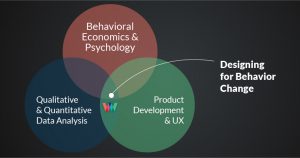Consumers expect one-on-one attention, but personalized marketing can also drive major wins for brands’ bottom lines.
Against the backdrop of an oversaturated digital ecosystem, consumers have come to expect personalization from their brand experiences. 91% of consumers say they are more likely to shop with brands that provide personalized offers and recommendations. Because consumers won’t stop scrolling for anything less, it has become increasingly important for brands to offer personalized marketing at every turn along the customer journey.
This article examines the benefits of personalized marketing and four major elements to consider when building a personalized marketing strategy.
Jump to a section…
What Is Personalized Marketing?
What Is Personalized Marketing?
Personalized marketing is a strategy that applies the huge quantities of data that companies now have available to them toward connecting with consumers in a highly targeted way. Another way to think of it is as one-to-one marketing, since it ideally leads to forging a direct connection between a representative of the company and an individual consumer. A successful personalized marketing strategy will ensure that the right customer sees the right ad/promotion/offer at the right time, with the added benefit of personal details like operating on a first-name basis, bringing up their interests, or making informed marketing decisions based on past purchases.
What Are The Benefits Of Personalized Marketing?
A personalized marketing strategy isn’t just a nice-to-have, it’s an important driver of critical business metrics. Here are three key ways personalized marketing can benefit brands:
- Customer service: Consumers expect brands to connect with them on a personal level, and are turned off when that experience is lacking: 63% of consumers say they are highly annoyed by generic, catch-all advertising messages.
- Increased revenue: Personalized marketing campaigns can increase revenue by as much as 15%. Providing consumers with pleasing personalized experiences leads to increased customer satisfaction and brand loyalty, which in turn boosts revenue.
- ROI growth: Generalized marketing may seek to reach a wider audience, but it’s also likely to achieve less. Targeting through personalization directs that marketing investment to an optimized audience, inspiring greater results and a higher return.
4 Ways To Build A Personalized Marketing Strategy
Effective personalized marketing requires a keen business strategy to define your approach and ensure your efforts lead to results. Here are four important factors to consider when building your personalized marketing strategy:
Understand Your Customers
To deliver truly personalized marketing, you need to develop a deep understanding of the customers you’re trying to reach. That’s where data comes in; effective personalization is built on data points from real customers in your audience. In addition to demographic details like age, gender, and location, truly personalized marketing takes into account data on buying habits and behaviors.
The next step is to segment your audience in order to offer personalization at scale. Whether you create customer groups based on shared interests, past purchases, or browsing behavior, segmentation allows you to connect your sales efforts with specific customers. Creating audience segments based on authentic data about your customers and their preferences will increase the likelihood of conversion.
In terms of customer experience, audience segmentation supports brands in delivering marketing messages that resonate as helpful and relevant. In June and July, a customer based in the United States probably won’t be interested in warm sweaters and coats, but a customer in Australia would be.
Consider The Whole Funnel
The majority of marketing efforts are typically focused on attracting and converting new customers. While a personalized marketing strategy can certainly help achieve that goal, it should also be applied more broadly across the sales funnel. Customer retention and customer conversion work hand in hand, so brands should leverage personalized marketing when interacting with both prospective and existing customers.
- Average customer value: Inspiring repeat business by encouraging consumers to return to your brand and make purchases on multiple occasions drives up the average value of those customers over time.
- Length of customer lifecycle: Understanding consumers’ evolving needs and the way they interact with your brand and products creates opportunities to better serve them beyond the first purchase, thereby extending their lifecycle as a customer.
- Brand loyalty: Imagine the experience of a new customer who converts because of the success of your personalized marketing strategy. If that level of personalization disappears after they make their first purchase, that sudden shift is sure to have a negative impact. On the other hand, offering consumers personalized interactions at every stage of the customer journey ensures long-term customer satisfaction and brand loyalty.
Leave No Channel Untouched
In the digital age, consumers’ shopping habits have changed considerably. Instead of visiting a brick-and-mortar store, browsing in-person, and leaving with a physical purchase, consumers seek out everything from browsing and discovery to purchasing and customer support in online channels. That’s why modern personalized marketing strategies benefit from omnichannel implementation.
Offering a personally relevant message on just one digital platform falls flat when that customer is likely to bounce from customer review websites to friends’ feedback on social media and from up close and personal YouTube videos back to your website or app store listing. An omnichannel strategy ensures that your personalization efforts are spread across all the platforms where consumers might interact with your brand, creating a consistent experience and ensuring that they feel understood and supported.
Put A Face To The Name
Personalized marketing strategies focus primarily on personalization as it pertains to the consumer, but it’s important to consider other opportunities for one-to-one interactions. In the same way that brands focus on the unique characteristics of their customers, personalization goes both ways. It’s a good idea to humanize your brand whenever possible; you know who your customers are, now how can they find out more about you?
Instead of forcing interactions through an anonymous customer service representative or a generic brand contact, adding a face and a name gives consumers a friendlier and more human experience. Not every channel allows this kind of personal touch, but it’s a good idea to offer customers some basic information — or even a photo — about the person they’re interacting with.
Developing a personalized marketing strategy for your brand will help ensure that you see benefits and results worthy of your efforts. In today’s competitive market and with savvy consumers’ modern expectations, there’s no skimping on personalization. Interested in integrating personalized marketing into your overall mobile strategy? wappier’s proprietary AI platform does the hard work of analyzing billions of data points every day so you can get straight to the personalization element of offering relevant recommendations to your customers. Ready to learn more?







